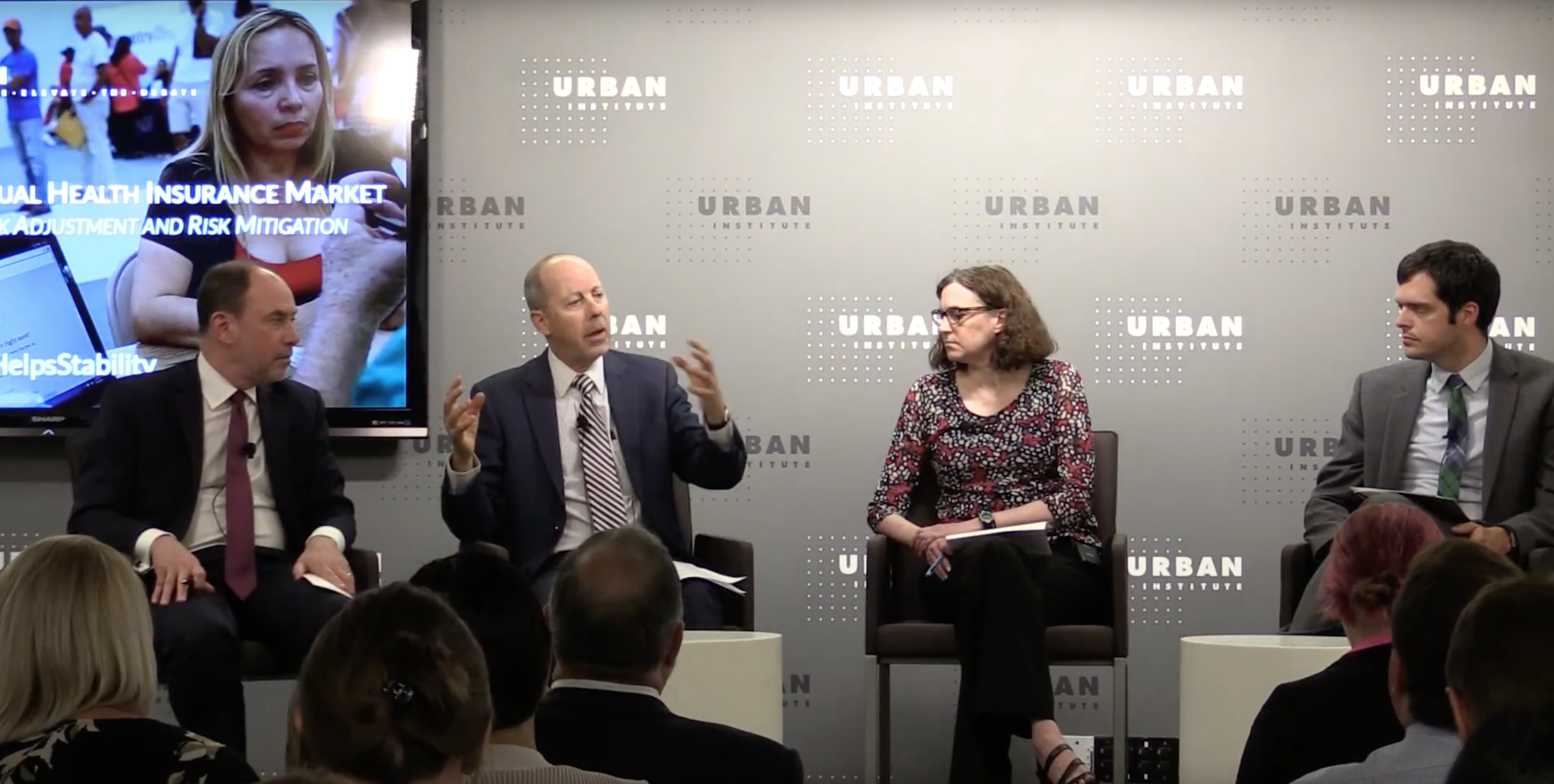
On June 28. 2017, Tim Layton was a panelist on “Stabilizing the Individual Market: Risk Adjustment and Risk Mitigation.” This summit, conducted via the American Action Forum and Urban Institute and moderated by American Action Forum President and former CBO Director Douglas Holtz-Eakin, discussed risk adjustment and other risk-mitigation measures to overcome instability and premium increases in the individual health insurance market.
A research brief summarizing the panel’s findings is here.
In the summit, the panelists discussed how risk adjustment is a vital tool in preventing community rating from causing harmful risk selection against plans and insurers’ consequent risk avoidance, but that it can be difficult to do well. They also discussed issues with the current risk adjustment policy and how those issues might be resolved.
In his remarks, Layton emphasized an important but often-overlooked tradeoff inherent in these markets, the tradeoff between using risk mitigation strategies to support generous high-cost coverage but risking driving young healthy enrollees out of the market vs. supporting lower-cost, less comprehensive coverage but risking a death spiral of more generous health plans. He suggested that any reform of the current individual market must take this key tradeoff into account.
The panel concluded that federal agencies must continue to evolve risk adjustment to meet the needs of insurance providers and consumers equally effectively. According to the panelists, regardless of how external factors may change based on the political climate, “resolving those issues intelligently and pragmatically is crucial to the effective functioning of individual markets.”
Enjoy content like this? Sign up for our newsletter and follow HCP on Twitter.